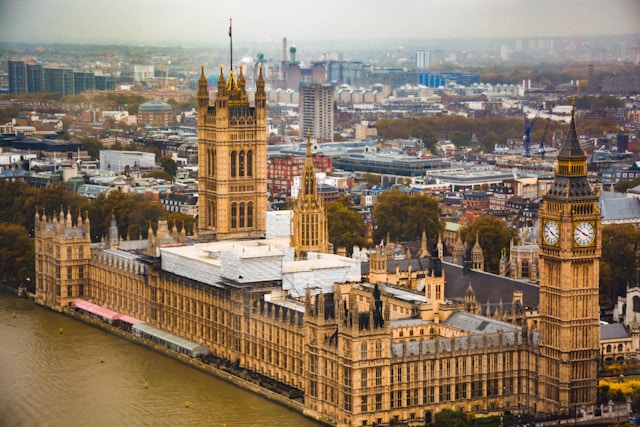Visa Stock Analysis: Is Visa a Strong Opportunity Ahead of Q4 Earnings?
$325.48
28 Jan 2026, 19:25


The UK is facing a 25% tariff on steel exports to the US as part of new trade measures introduced by President Donald Trump. The move threatens hundreds of millions of pounds' worth of UK steel exports, raising concerns among industry leaders and government officials.
Prime Minister Keir Starmer has vowed to keep all options open as the UK seeks to negotiate a better deal. Despite his efforts to secure exemptions for British steel and aluminum, Trump confirmed that no special treatment was granted.
The European Union (EU) and Canada have also been hit by US tariffs, prompting swift retaliation. The EU announced counter-tariffs on £22 billion worth of US goods, targeting products such as bourbon, motorbikes, and boats. These measures will be partially introduced on April 1 and fully implemented by April 13.
Meanwhile, Canada has imposed £16 billion in retaliatory tariffs on US exports, including steel, aluminum, computers, and sports equipment. Trump responded by warning that the US would match any tariffs imposed on American exports, further escalating tensions.
The UK’s steel industry is already feeling the effects of these tariffs. Gareth Stace, Director General of UK Steel, called the US move “hugely disappointing,” citing that some contracts have already been canceled or put on hold.
Unions and industry leaders are urging the UK government to take action:
The UK exports around £700 million worth of steel and aluminum to the US each year, but the tariffs also affect steel-based products, which make up an additional £2.2 billion in trade—accounting for approximately 5% of UK exports to the US.
In a recent parliamentary session, opposition leaders urged the government to take a stronger stance, similar to the EU and Canada. However, Starmer remains focused on negotiating a broader economic agreement with the US, which could eventually address these tariffs.
While the UK has not ruled out retaliation, it appears unlikely in the immediate future.
While Trump claims the tariffs will boost US steel and aluminum production, critics argue they will raise consumer prices and slow economic growth.
Many US industries that rely on imported metals—including automakers and aerospace manufacturers—have expressed concerns about rising costs. In fact, the American Automotive Policy Council warned that the tariffs will increase production expenses for US car manufacturers, potentially impacting consumers.
US stock markets have already reacted negatively, with share prices dropping as investors worry about a potential economic slowdown.
The US and UK continue to hold frequent trade discussions, but so far, no exemptions have been made for British steel and aluminum.
With the EU and Canada taking a strong retaliatory approach, the pressure is on for the UK to decide its next move—whether to strike a deal or fight back with its own trade measures.
For now, the global trade war continues, with businesses and consumers on both sides of the Atlantic feeling the effects.
Source: bbc.co.uk, ChatGpt